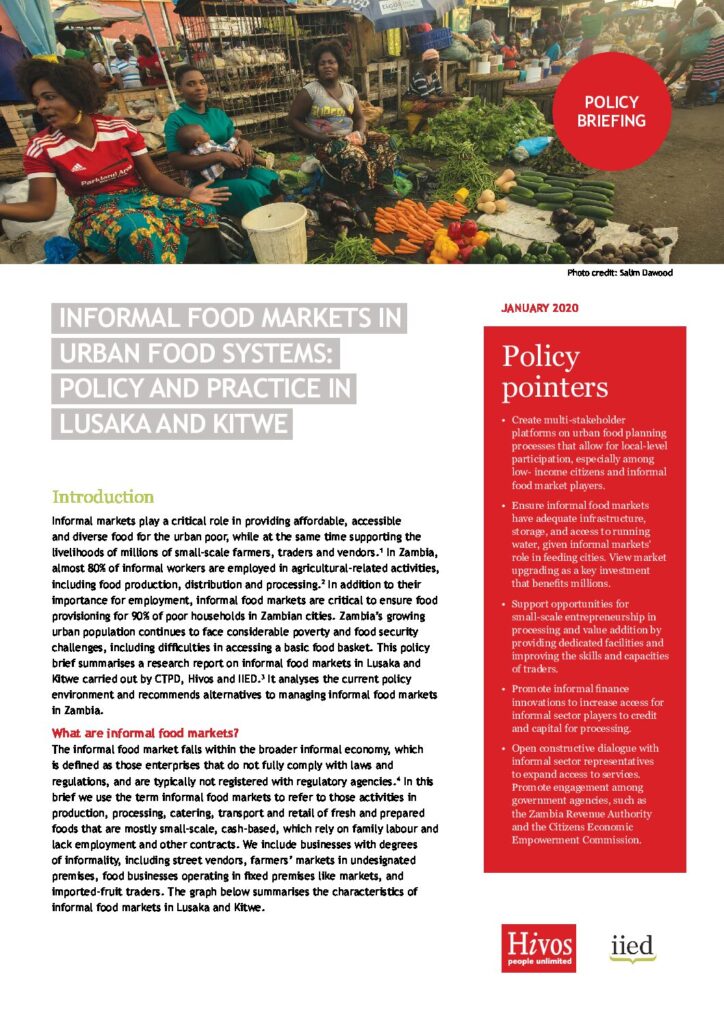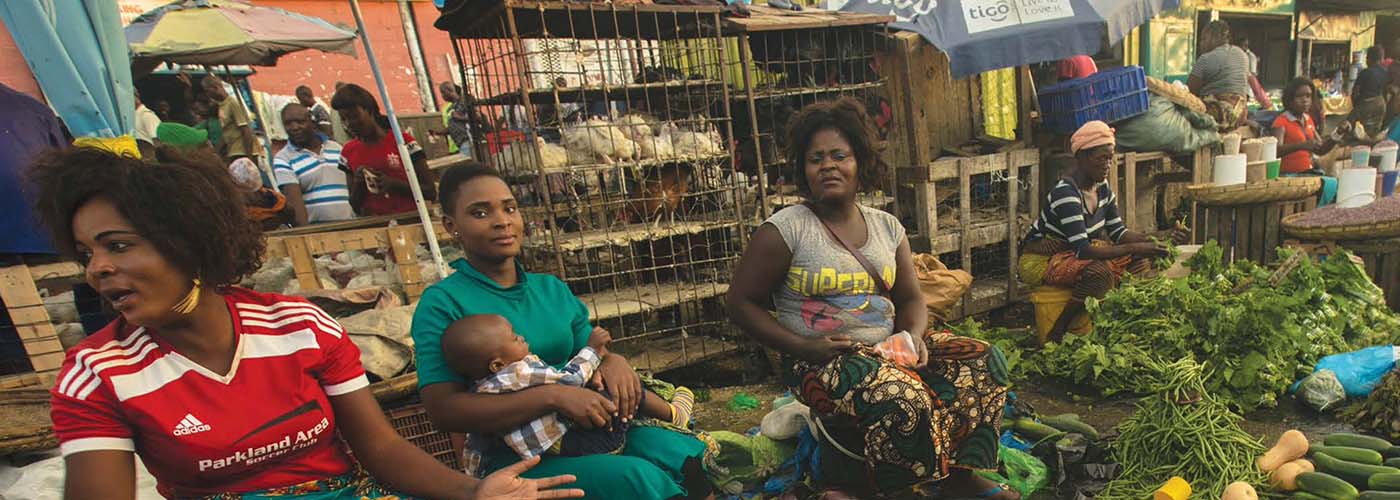Informal markets play a critical role in providing affordable, accessible and diverse food for the urban poor, while at the same time supporting the livelihoods of millions of small-scale farmers, traders and vendors.
In Zambia, almost 80% of informal workers are employed in agricultural-related activities, including food production, distribution and processing.
In addition to their importance for employment, informal food markets are critical to ensure food provisioning for 90% of poor households in Zambian cities. Zambia’s growing urban population continues to face considerable poverty and food security challenges, including difficulties in accessing a basic food basket.
This policy brief summarises a research report on informal food markets in Lusaka and Kitwe carried out by CTPD, Hivos and IIED.


